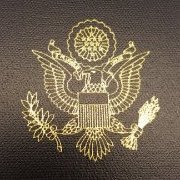Dollar seen as risky currency status alert
-
Recently Browsing 0 members
- No registered users viewing this page.
-
Topics
-
Popular Contributors
-
Latest posts...
-
10
bangkok bank, kashikorn card less, ATM withdrawl limits
you better run home to your mama now It was a sensible question... why get abusive ? Why make things harder for yourself when getting a new card is so simple ? -
73
Boise to Host “Heterosexual Awesomeness Fest” During Pride Month, Stirring National Debate
Much like I can hear a cringe worthy lisp from your post. Lighten up, Francis.I Am gay and don't care what they do. They would make a much better BBQ than the libs but when it comes to things like this nobody's is more fabulous than gay people. They will be lucky to last a day or two before they are slumped over their stools at the VFW. But yeah much better music and drugs at pride fo' sho' They have tried these events in the past and they fizzle out because they end up being a bunch of old boring people. -
3
Senate Dems trying to stop nominee Ed Martin from D.C Prosecutor Postion…
Yes, but not as bad as Musk. -
116
American version of Adolf Hitler': Major Jewish newspaper makes stark Trump comparison
What does the 88 mean in your name? Meaning of 88 The number 88 is used as a shorthand for "Heil Hitler" in neo-Nazi and white supremacist circles, where the letter H is the eighth letter of the alphabet, and 88 represents HH. You are a Nazi. -
16
Then again...
I asked Gemini a slightly different question, how long would it take to travel from England to Thailand by road. The answer was several months minimum. Flight time London to Bangkok 12 hours. IMO the OP is a masochist. -
63
Immigration Thai PM Tackles Overstaying Tourists with Visa-Free Scheme Revamp
Here is a controversial idea... make missed 90 reporting an offense on par with overstay, then make presenting the TM47 receipt AND passport mandatory (pdf and photos acceptable) for all sorts of mundane reasons (checking into a hotel, requesting bank services, obtaining a SIM card, booking tickets, boarding planes/trains/ferries, etc.) -- no more using Thai DL... watch the number of overstays decrease significantly.
-
-
Popular in The Pub
-






.thumb.jpeg.d2d19a66404642fd9ff62d6262fd153e.jpeg)







Recommended Posts
Create an account or sign in to comment
You need to be a member in order to leave a comment
Create an account
Sign up for a new account in our community. It's easy!
Register a new accountSign in
Already have an account? Sign in here.
Sign In Now